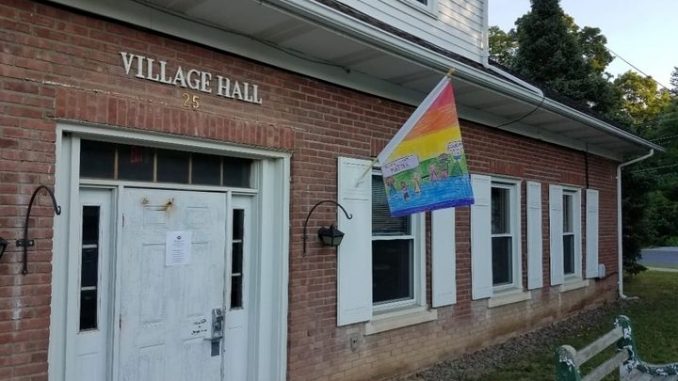
Florida became the eighth state to place restrictions on gender-affirming healthcare for minors on March 18, putting the safety of the trans community at risk.
The law joins a growing body of legislation nationwide that restricts access to transition-related healthcare. In 2023 alone, over 100 pieces of legislation have been introduced that would restrict gender-affirming care, according to the American Civil Liberties Union (ACLU).
Florida passed the law because Board of Medicine members believed that there is not enough research to justify the potential side effects of treatment for minors. Doctors who provide hormone-based treatments to minors could face reprimands, fines or suspension under the new Florida law.
Gender-affirming care includes all social, psychological, medical and behavioral procedures that support a trans person’s gender identity, as defined by the World Health Organization.
State restrictions on healthcare prohibit hormone-related treatments, such as puberty blockers or hormone replacement therapy. These treatments delay puberty or help develop male or female sex characteristics.
The Florida law, among laws in several other states, contradicts numerous medical studies and organizations that advocate for access to gender-affirming care. The American Medical Association (AMA), the American Academy of Pediatrics (AAP) and the American Psychological Association (APA) have all issued statements that support gender-affirming treatment for trans minors. A study done by the Journal of the American Media Association (JAMA) showed that gender-affirming care can decrease the rates of suicide, depression and anxiety in trans and non-binary youth.
“Every major medical association in the United States recognizes the medical necessity of transition-related care for improving the physical and mental health of transgender people,” wrote Dr. James L. Madara, CEO and executive vice president of the AMA.
Locally, while New Paltz is generally considered a supportive environment, transphobia does occur. Mayor Tim Rogers posted to the New Paltz Community Facebook group on March 18 that a friend had been called a transphobic slur by a group of young women driving by. Mayor Rogers called the incident “intolerable bigotry.”
“We often surprise ourselves when unpleasant things happen. On some sort of continuum, we’re probably better and more thoughtful than other places, but we have plenty of room for improvement,” said Mayor Rogers about New Paltz’s attitude towards the LGBT community.
Mayor Rogers also said this case is an isolated incident and he has not heard of other transphobic instances happening in town.
“One of the reasons I posted what I posted on social media is really just to make sure that this type of thing is on our radar screens,” the Mayor said. “Calling out this kind of bigoted, intolerable behavior is important.”
On campus, trans and non-binary students say they feel safe — but small moments of discrimination still happen on a daily basis. Improvements that can be made are normalizing gender-neutral language and making sure to ask people their gender and pronouns.
“It’s the little things that count a lot,” said second-year creative writing and graphic design major Milo D’Alessandro. “It would be potentially helpful if everyone was on the same page in terms of referring to people that they aren’t familiar with gender-neutral pronouns.”
Students also call the campus an isolated bubble. Trans students risk going home to unsupportive environments with little to no resources. Even the remainder of Ulster County can be unsafe.
“The best thing people can do is, if you are nearby when something happens, one of those things will like regret microaggressions towards trans people, and you hear it and you have the privilege of being a cis person in that moment, taking your privilege and using it towards telling whoever that was that wasn’t okay,” fourth-year psychology major Casper Vural said on how to help trans people feel supported off-campus.
Vural emphasized the trans community’s need for acceptance as healthcare restrictions become more and more rampant across the country.
“Consider having more compassion, because we’re really looking for acceptance anywhere we can right now. And it’s a scary time for trans people and anything that can alleviate some of those daily things that we go through will change a lot,” Vural said.
In response to transphobic discrimination, New Paltz Pride issued the following statement:
“It’s definitely a scary time for transgender people across the country right now, and it’s so easy to fall into doomscrolling and lose hope. But the reality is: the transgender community still exists, and will continue to exist, regardless of any laws or violence. We’re here, at Pride, to create a space where all LGBTQ+ people, and especially trans folks, can enjoy one another’s company and celebrate any victories, the personal and political. Hope is the most important thing to have, along with remembering to treasure the trans people in your life, especially if you yourself are trans.”
States that currently have laws targeting trans healthcare for minors include Alabama, Arkansas, Arizona, Florida, Mississippi, South Dakota and Utah. At least 23 other states have proposed legislation that would put similar bans into effect. Oklahoma, South Carolina and Virginia have proposed bills that would restrict trans healthcare up to the age of 26.
In 2021, the ACLU represented four families and two doctors in Arkansas, where doctors are prohibited from providing or referring trans minors to gender-affirming care. Since then, more and more families are challenging healthcare restrictions in court. The Arkansas lawsuit is still ongoing. Its verdict could set precedent for the future of restrictive trans healthcare laws nationwide.
